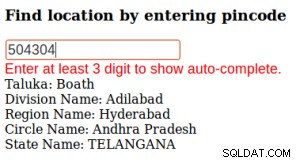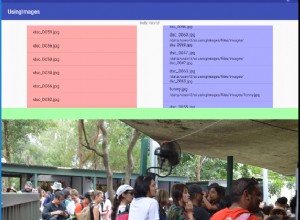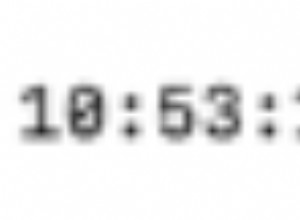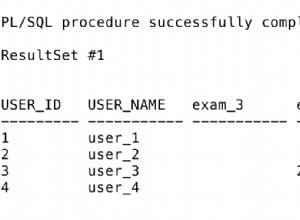Esta es una de las pocas veces que un cursor es realmente ideal en SQL Server. Aquí hay una manera. Una vez que vea la declaración PRINT y esté satisfecho, puede comentarla y descomentar las dos líneas debajo de ella. Puse algo de lógica para agregar el nombre del archivo y una fecha de procesamiento que generalmente se necesita, pero la definición de su tabla necesitaría estas columnas. Debería transmitir la idea.
---------------------------------------------------------------------------------------------------------------
--Set some variables
---------------------------------------------------------------------------------------------------------------
DECLARE @dt VARCHAR(10) --date variable but stored as VARCHAR for formatting of file name
DECLARE @fileLocation VARCHAR(128) = 'E:\DATA_TRANSFERS\' --production location which is \\issqlstd01 but the xp_dirtree didn't like this
DECLARE @sql NVARCHAR(4000) --dynamic sql variable
DECLARE @fileName VARCHAR(128) --full file name variable
---------------------------------------------------------------------------------------------------------------
--Get a list of all the file names in the directory
---------------------------------------------------------------------------------------------------------------
IF OBJECT_ID('tempdb..#FileNames') IS NOT NULL DROP TABLE #FileNames
CREATE TABLE #FileNames (
id int IDENTITY(1,1)
,subdirectory nvarchar(512)
,depth int
,isfile bit)
INSERT #FileNames (subdirectory,depth,isfile)
EXEC xp_dirtree @fileLocation, 1, 1
---------------------------------------------------------------------------------------------------------------
--Create a cursor to fetch the file names
---------------------------------------------------------------------------------------------------------------
DECLARE c CURSOR FOR
select subdirectory from #FileNames where isfile = 1
OPEN c
FETCH NEXT FROM c INTO @fileName
---------------------------------------------------------------------------------------------------------------
--For each file, bulk insert
---------------------------------------------------------------------------------------------------------------
WHILE @@FETCH_STATUS = 0
BEGIN
SET @sql = 'BULK INSERT Employee_Table FROM '''+ @fileLocation + @fileName +''' WITH (FIELDTERMINATOR = ''\t'',KEEPNULLS,ROWTERMINATOR = ''0x0a'')'
--Try the bulk insert, if error is thrown log the error
--Also update the Table Columns which aren't a part of the original file (load date and original file name)
BEGIN TRY
PRINT(@sql)
--EXEC(@sql)
--UPDATE Employee_Table SET OrigFile = @fileName, LoadDate = GETDATE() WHERE OrigFile IS NULL
END TRY
BEGIN CATCH
SELECT ERROR_MESSAGE()
END CATCH
FETCH NEXT FROM c INTO @fileName
END
CLOSE c
DEALLOCATE c
GO




